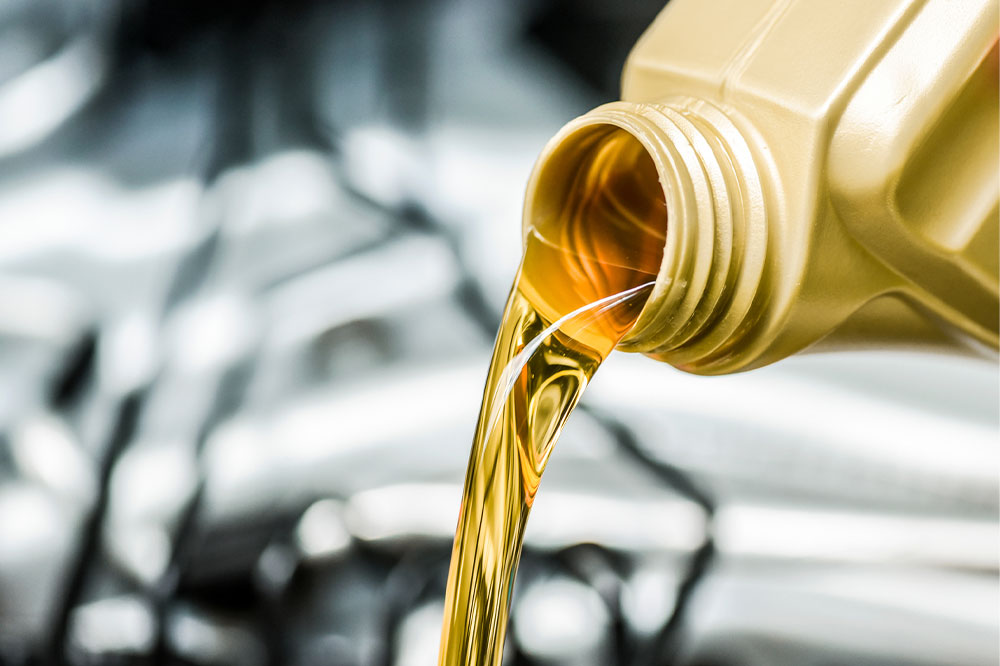Everything to Know About Oil Change Services

Motor oil is considered the bloodline of the car’s engine even when the vehicles have become sophisticated with new technology. Modern cars come with a built-in service reminder informing you if your car needs an oil change. Depending upon the usage, you have to consider getting oil change services regularly. The service includes examining oil and cabin filters, brake pads, and tires, among others. Here are a few things that will help you know everything about oil change services.
When should you change the motor oil?
If the motor oil is worn out or aged, the oil degrades from heat and pressure. It can collect harmful particles that can damage the vehicle in the long run. It would be best if you did not wait for the signal to get the oil changed. You should get your car checked on an interval basis.
How often should you change the oil?
It would be great if you get the motor oil changed at 7,500 or 10,000 miles. You can even get the oil changed between six to twelve months. If you don’t drive your car too often, the oil still remains safe to use. Oil usually becomes less effective as it ages and can lead to shorter engine life.
How often should you check the level of the oil in your car?
Make sure you check the oil level at least once a month. You can even check the condition of the oil yourself. You need to insert a dipstick to see the level. If the oil is below the mark, you will have to add some more oil to bring it to the optimal level.
When should you book an oil change service?
During an oil check, if the level is between the minimum and maximum lines on the dipstick, that means there is plenty of oil. But this doesn’t mean you don’t need an oil change. You should book an oil change service when you feel that the oil has become dirty or contaminated, when it appears to be thick or opaque, or when the oil is below the minimum line on the dipstick.
What options are available for an oil change?
There are different types of oil used for different purposes. You can research and check for the right type of oil that will meet your requirements and will perform best for your vehicle. If you drive long distances or in crowded areas, you should go for the oil with viscosity that matches your driving habits. Here are some kinds of oils you can choose from-
- Synthetic oil
For most cars, you don’t need to upgrade from conventional oil to synthetic oil. Check with your mechanic and the manufacturer, if your car demands synthetic oil, you can go for it. For high-performance engines, this is a good choice. This oil is a bit expensive but performs 50% better than conventional oil. It keeps the engine cleaner and free of mineral backup. - Synthetic blend oil
This is an excellent oil for SUVs and trucks that haul, tow, and transport goods. It offers less mineral build-up and lasts longer. - High mileage oil
This oil offers better combustion for long-distance drives. High-mileage oil has additives that prevent leaks and reinforce seals. - Conventional oil
Also known as standard oil, conventional oil is a natural and crude oil that is refined only partially to improve its protective properties. A wide range of viscosity grades is available for all types of vehicles.
To determine the best oil for your vehicle, you should understand the type of vehicle you have, what are your driving habits, what is the age and mileage of your vehicle, and what are the weather conditions in the area that you live in. Once you are clear about all these questions, you can contact an experienced mechanic who can suggest the best oil fit your vehicle.
What additional services do oil change service providers offer in the country?
When you go for an oil change service, you can ask the mechanic for some additional services, which could include the following-
- Coolant exchange
If you haven’t changed your engine oil for too long, there are chances that the coolant levels are low. You can ask the technician to check the coolant level along with checking the status of the engine oil. - Engine flush service
You can ask for this service to improve your engine’s performance. Drivers who do a lot of pause-and-play driving often face the issue of gunk build-up in the engine. - Automatic transmission fluid change
Transmission of the car deteriorates over a long time, which leads to the operating transmission temperature increases. Make sure to get the transmission fluid change along with the oil change service.
Additional services you can get along with the oil change service include power steering flush, fuel filter replacement, light replacements, air filter, wiper blades, fuel system cleaning, differential services, and serpentine belt replacement.
What happens if you don’t get the oil changed?
Contaminated oil has adverse effects on the engine’s health. If thick mud clogs the passage, the oil cannot flow smoothly through the engine and lubricate all the components. This results in wear and tear of the engine and might even cause complete failure. During short trips, the engine doesn’t get time to heat up to the level to burn off water vapor, due to which acids are formed. To protect the engine, almost all commercial motor oil products come with additives. These oil additives improve the performance of the engine.
The engine of your vehicle fails when you neglect it. To improve your engine’s health, you should maintain a proper oil change schedule, use the correct oil, and then adjust as the engine ages. Choose the best oil change services in the country. The technician should have experience, knowledge, and updated technology that can monitor oil quality and help you make the best decision considering your budget and vehicle.






